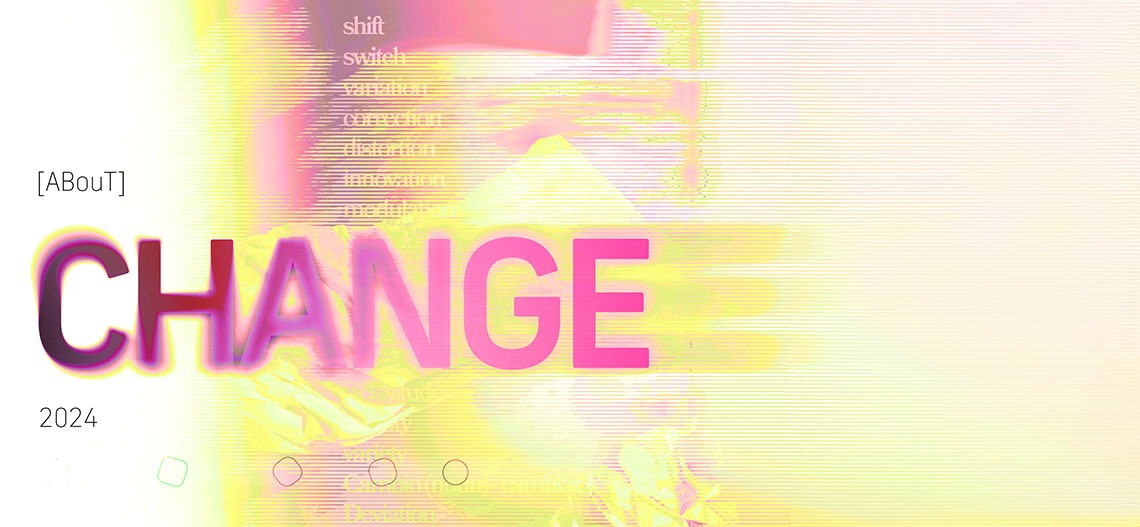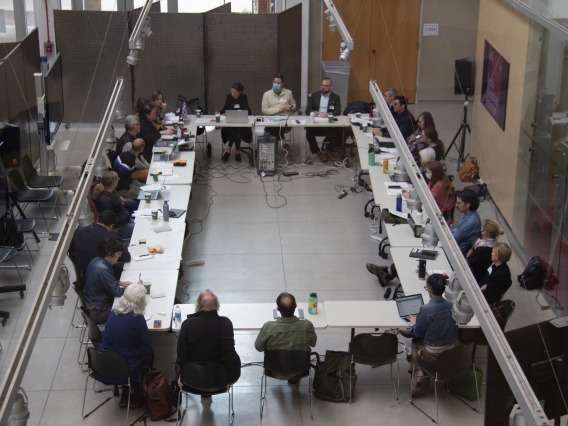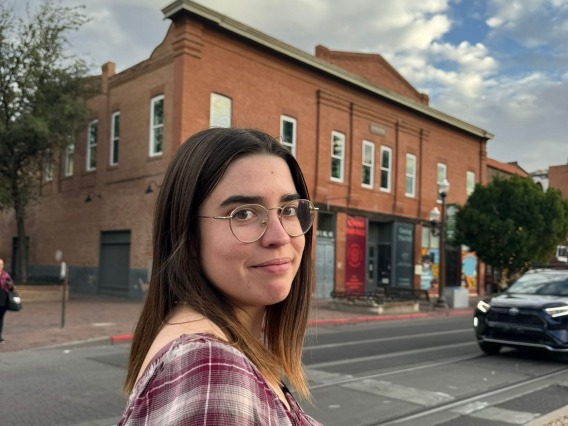CAPLA's [ABouT] Journal Reimagines Architectural Discourse with 'Change' Edition

[ABouT] journal is the reincarnation of [TRANS-] journal, a student-run academic publication founded in 2014 by members of Tau Sigma Delta at CAPLA. [ABouT] continues the practice of [TRANS-] by exploring topics across architecture and design, beyond the surface of understanding and through the intricacies of architecture.
“[ABouT] Change seeks to be a timestamp for architectural theory, discussion and education in the Southwest,” says Cameron Scott-Noble, B.Arch ‘25, of the upcoming 8th edition of the journal.
Getting involved with the [ABouT] journal provides CAPLA students with a unique learning experience.
“I became very interested in the class because it's a subject that normal architectural education doesn't touch on,” says Scott-Noble. "Print media is one of the only ways we know history, so being able to contribute to that aspect piqued my interest in the class.”
Scott-Noble shared how they settled on the title “Change.” They started by brainstorming one word titles similar to past issues of the journal. In this process, they recognized that having a broad theme was the best way to accommodate a wide variety of work. “Change” reflected that best and was their winner.
“The decision comes at a time of rapid political, social, economic and climatic change in both the Southwest United States and across the globe,” says Scott-Noble. “There was also a lot of introspection on change within CAPLA itself. The group identified that changing directors, curriculum and faculty have created new ecosystems of thought, studio culture and social accountability, among other ideas.”
This provides the CAPLA students working on the journal the opportunity to share and publish their perspectives on architecture, even before graduating and entering the workforce.
“[ABouT] Change excited me specifically because it gives my classmates and I a voice to something that the older generation, specifically our professors and older architects, haven't had to live through,” says Scott-Noble.
[ABouT] Change ties in aspects of current events that set this installment apart from the others.
“Following [ABouT] Performance and [ABouT] Home, [ABouT] Change addresses some of the largest issues permeating into the profession today,” says Scott-Noble.
Scott-Noble has honorable aspirations for life after completing his degree.
“My goal post-graduation is to make as much change in communities as possible through my works and architecture,” says Scott-Noble. “I would love to eventually start a firm that works towards increasing visibility and participation of the context, both human and non-human, and work towards improving the world wherever I work.”
This is the first year that the journal is bilingual. They hope to get submissions in English and Spanish.
“[ABouT] Change seeks to garner submissions in both architectural theory, architectural discussion, built and unbuilt projects and observations from across the Southwest,” says Scott-Noble.
Emerging Faculty Fellow Noémie Despland-Lichtert is advising the students in the development of the publication.
"I want this issue to foster a sense of community and collaboration among our students by providing them with a platform to share their ideas and experiences," she said. "I have truly enjoyed teaching the class and I have been very impressed with the students' work, resourcefulness and initiative."
Submissions are due April 15.
For more information and submission requirements, visit capla.arizona.edu/about-journal.



